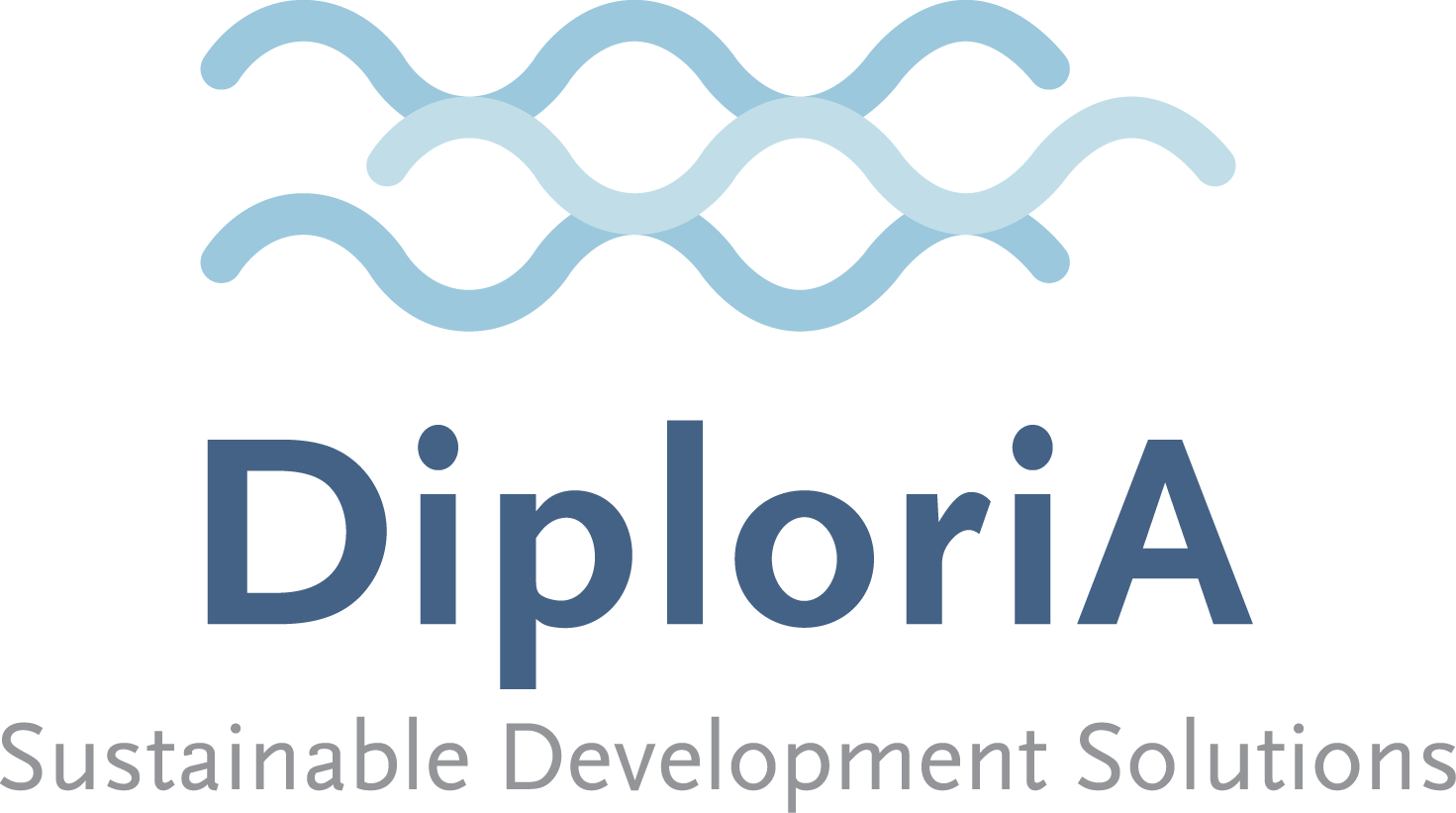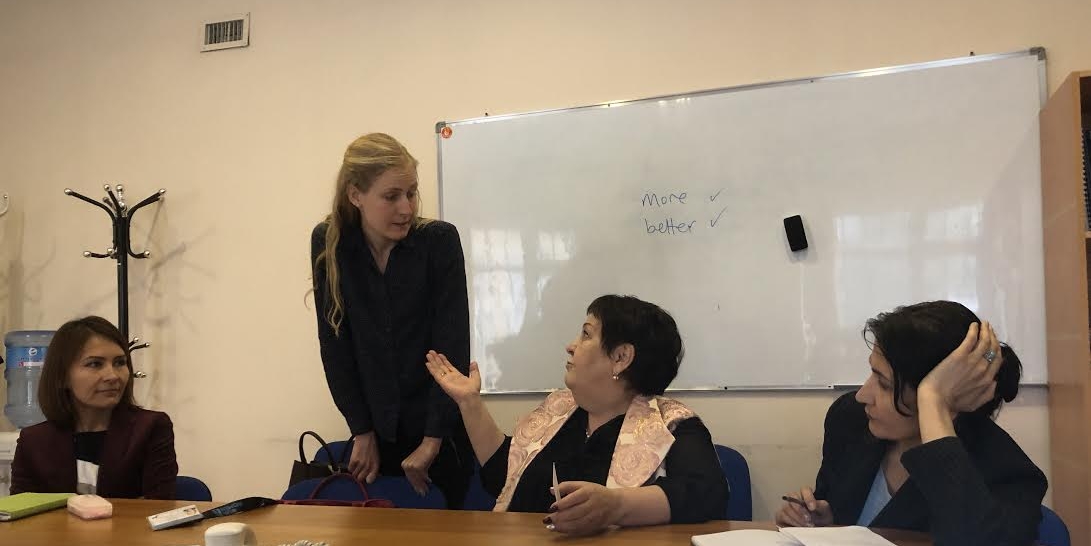
News and Blogs
Dushanbe Women Water Forum 2018: Bridging Voices to Action
Announcement: Women Water Forum to be held in Dushanbe, Tajikistan
Women are an important stakeholder group in the provision, management and safeguarding of water. This was already acknowledged in the Dublin-Rio Principles for Integrated Water Resources Management that were endorsed by the Earth Summit of 1992. Subsequently, the Water for Life Decade 2005 – 2015 included a specific objective to “ensure the participation and involvement of women in water-related development efforts.” Two major gender and water fora were organized in the course of the Water for Life Decade to advance on women’s engagement. In this tradition, the government of Tajikistan will again host a Women Water Forum as a preconference event to the High-Level International Conference for the Water Action Decade. The Women Water Forum will join women leaders from different sectors in society to jointly develop priority actions for the Water Action Decade that will further gender sensitivity and women inclusiveness in water governance at all levels.
I have the pleasure of assisting the National Organizing Committee as Resource Person and liaison to the International Steering Committee.
Water Decade Conference in Dushanbe
Announcement: High-level International Conference on the Water for Sustainable Development Action Decade will convene in Dushanbe, Tajikistan
Tajikistan has always been on the forefront of water cooperation for sustainable development. They have spearheaded the Water for Life Decade (2005-2015), the International Year of Water Cooperation (2012), and most recently, the International Decade for Action “Water or Sustainable Development” 2018 – 2028.
The Dushanbe High-Level Water Conferences, organized by the government of Tajikistan in cooperation with the United Nations during the Water for Life Decade provided a platform for joining State and non-State actors in action. In this tradition, the Government of Tajikistan and UNDESA are organizing the High-Level International Conference on the International Decade for Action “Water for Sustainable Development” 2018 – 2028 that will take place on 20 – 22 June, 2018 in Dushanbe, Tajikistan. There will be several Pre-conference Events on the 19th of June to give different stakeholder groups the opportunity to exchange and prepare amongst themselves. DiploriA is a member of the International Steering Committee.
International Decade for Action “Water for Sustainable Development” 2018 – 2028 has started
Announcement: the International Decade for Action “Water for Suistainable Development 2018 - 2028 has started
Water is a bare necessity of life and our freshwater resources are increasingly under pressure as the world population and economies grow exponentially, degrade the environment and exacerbate climate change. It is also a sad reality that in this day and age one in six people still lack access to sufficient and safe water for their daily needs, and that every minute a child dies because of contaminated water and inadequate sanitation and hygiene.
On World Water Day 2018 the Water Action Decade 2018 – 2028 was launched to address the increasing water challenges as a core element of the 2030 Agenda for Sustainable Development and to mobilize action and collaboration of all stakeholders across the globe for the sustainable use and governance of water resources.
Women’s Water Challenges and Perspectives addressed at World Water Forum 8
Here’s my blog on the main women’s session of the World Water Forum 8
During World Water Forum 8, the priority concerns and challenges of civil society were the subject of 17 focus sessions including on social capital in water governance, small-scale farmers and climate change, low-cost technologies and citizen’s education, organized by the World Water Forum 8 Citizens Commission and its partners.
Women, Youth and Indigenous People had their own dedicated session. Building on the water and gender initiative of the National Water Agency of Brazil, the Women’s session of March 22nd discussed the persisting challenges to implement Dublin Principle 3, and demonstrated the added value of including women in decision-making at all levels. The session was addressed by Brazilian Chief Prosecutor Dr. Raquel Dodge, and the new President of ANA, Dr. Christianne Días. The international panel joined women leaders from Brazil, Kenya, Myanmar, New Zealand and Turkey. The session was coordinated by Women for Water Partnership Vice-President, Margarida Yassuda. I had the pleasure of moderating this vibrant interaction. My summary notes can be viewed here.
Citizen's Forum World Water Forum 8 closed
Today the Citizens Forum of World Water Forum 8 has concluded. During the closing ceremony in the Water Arena of the Citizens Village, the Chair of the Citizens Commission, Lupercio Ziroldi Antonio recalled the many activities, both nationally and internationally that were organised during and preceding the Forum to include civil society in all the processes and stimulate them to engage in the sustainable use and the protection of water resources. He highlighted the success of the Citizens Village to inform the Brazilian public at large.
As Citizens Commission we look back on an intense and fruitful period with ups and downs, but always a cooperative spirit to overcome the challenges ahead. I have only been with the Citizens Commission during its final year leading up to the Forum. I would like to commend my Brazilian and international colleagues for the partnership and cooperation.
.
Women and Water talks in the World Water Forum 8 Citizens Village
My blog about Women and Water Talks in the Water Arena of the Citizen’s Village
In the Water Arena of the Citizens Village around 300 people came to take part in the Women and Water talks. The role of women in the provision, management and safeguarding of water was discussed by representatives from academia, river basin committees, government and civil society. I was asked to provide the international context and provide some examples of the translation of Rio/Dublin Principle 3 of Integrated Water Resources Management into practice. For the presentation, click here.
At the conclusion of the event, Dr. Daniela Nogueira launched the initiative “Latin American Women for Water Collective” (Collectivo Latino-americano de Mujeres por el Agua, CLMA). Participants applauded the initiative and enthusiastically subscribed to it. The call for a structured engagement of women in water governance was an outcome of the Water and Gender Expert Workshop organized by the National Water Agency of Brazil (ANA) on October 25 and 26, 2017 to address the water and gender connection (SDG5 - SDG6 interface) . DiploriA was commissioned to organise and conduct the workshop and to provide building blocks for a water and gender agenda in Brazil and Latin America.
Central Asia Civil Society Forum on Water for Sustainable Development
A blog post about the Central Asia Civil Society Forum, in which I participated in February 2018
In preparation of the World Water Forum 8, some 100 representatives from Academia, Local Communities, Young Water Professionals and the Women Major Group met in Dushanbe, Tajikistan on 14 and 15 February, 2018 to discuss the implementation of SDG6 in their region. The vibrant discussions resulted in a declaration that will be presented at the upcoming World Water Forum in Brasilia, but also serves as the basis for civil society engagement in the Water for Sustainable Development Action Decade that will be kicked off with a High-Level International Conference in Dushanbe in June 2018.
I supported the main organiser, the UNESCO Chair for IWRM at Kazakh-German University as resource person and also had the pleasure to deliver the keynote address on Achieving Water Security through an ‘all-of-Society Engagement and Partnership’ in my capacity as Member of the World Water Forum 8 Citizens Commission.
I was impressive how the organisers have managed to organise in-depth discussions within the four stakeholder groups and to subsequently integrate the outcomes through an interactive multi-stakeholder process. Including a gender dimension into the predominantly technical discussions remains a challenge.
3rd Asia-Pacific Water Summit, Yangon
Thoughts on my work for the 3rd Asia-Pacific Water Summit in Myanmar.
The Asia-Pacific region is characterized by rapid economic expansion, population growth and urban sprawl. The third Asia-Pacific Water Summit convened in Yangon, Myanmar on December 11 and 12, 2017 to address the mounting water challenges of the region at highest political level and in a multi-stakeholder setting. The Summit, organized by the Asia-Pacific Water Forum, the government of Myanmar and partners, was also the conclusion of the regional process for World Water Forum 8 and resulted in the Yangon Declaration to be carried forward to the Forum in Brasilia of March 2018.
I had the pleasure of representing the World Water Forum 8 Citizens Commission as co-organizer and moderator of the Women and Youth session.
Water and Gender in Brazil and Latin America
A debriefing of the workshop I conducted in Brazil on gender sensitive and women inclusive water governance.
On the 25th – 27th of October, 2017 the National Water Agency of Brazil ANA) invited experts from Brazil and other Latin-American countries to discuss the way forward towards gender-sensitive and women-inclusive water governance.
I was commissioned to conduct the workshop and provide recommendations for ANA, taking into consideration the workshop deliberations.
The workshop concluded that Dublin Principle 3 on the central role of Women in the provision, management and safeguarding of water is the ‘neglected child’ of Integrated Water Resources Management (IWRM). Implementation of this principle was considered key to delivering on SDG6 through an all-of-society engagement and partnership. It needs a long-term strategic approach that is carried through by strong and committed leadership, a medium-term action program that is consistent, informed by research and data, and that addresses the priorities of the different states, (sub)basins and communities; and high profile quick wins to sensitize politicians and the public at large. There was consensus on diversity of gender roles and there was caution to not consider gender parity in numbers as the main indicator for achieving Dublin Principle 3. The intersectionality of gender has to be taken into account and empowerment of grassroots women to raise their voice in public has to be actively pursued so that water and development discussions and decisions become truly gender sensitive.
Sharing and Caring for Water, Durban
I’ve blogged about my participation in the Durban Conference in October 2017.
Participatory water governance is practiced successfully in South Africa at different levels. The eThekwini municipality of Durban and the Wildlife and Environment Society of South Africa (WESSA), winners of the 2015 Water for Life Decade best practice award and member of the Global Participatory Water Management Network organized the Sharing and Caring for Water conference in Durban, South Africa to discuss pathways to participative and cooperative water governance. The program included a selection of good practices across Southern Africa, linking local practice to global concerns.
The conference highlighted that water security requires all custodians to be equally committed and underpinned the importance government support to facilitate collaboration. An executive summary of the conference proceedings is available here.
The conference also had the objective to carry the voices of Africa to the World Water Forum 8 in Brazil. I delivered the keynote speech as member of the Citizens Commission of World Water Forum 8. You can view the presentation outline here.
The Global Participatory Water Management Network visited Envirosan Waterless Sanitation Solutions.
Citizen’s Process World Water Forum 8
A blog on my visit to the World Water Forum 8, second stakeholder meeting
World Water Forum 8 has responded to the call for an ‘all-of-society engagement and partnership’ to achieve the Sustainable Development Goals, by adding a Citizens Forum to the regular World Water Forum processes. The main objective of the Citizen Process is: “To develop and stimulate actions that promote the qualified participation of the Civil Society in the discussions and activities of the 8th World Water Forum, leaving a legacy of their contributions for the management of water resources of the planet”.
During the Second Stakeholder Meeting of 26 and 27 April, 2017 in Brasilia, I was invited to join the World Water Forum 8 Citizens Commission as focal point for Women and liaison with the regional processes.












